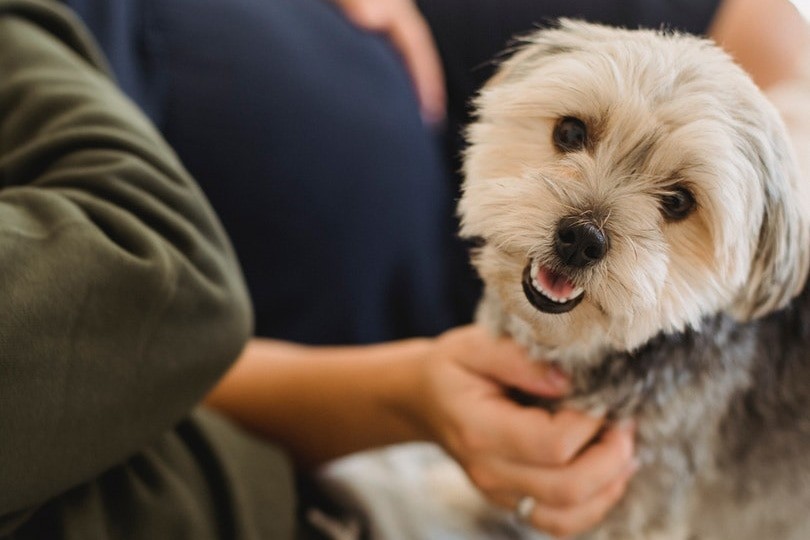Cloning a pet is a fascinating yet complex topic, and at PETS.EDU.VN, we understand your desire to explore every option for keeping your beloved companion’s memory alive, perhaps even through a genetic replica. This in-depth article will delve into the financial aspects of pet cloning, providing valuable insights into the costs involved and the factors that influence them, while also addressing the emotional and ethical considerations, ultimately helping you make an informed decision about advanced genetic preservation, reproductive technology, and animal biotechnology. We aim to give you a clear picture of pet cloning expenses, affordability, and payment choices.
1. Understanding Pet Cloning: The Basics
Cloning, at its core, is a sophisticated process that creates a genetic duplicate of an existing organism. To understand the cost, it’s essential to grasp the science behind it.
1.1. The Scientific Process Explained
The process involves several key steps:
- Somatic Cell Collection: A somatic cell (any cell other than a sperm or egg cell) is taken from the pet you wish to clone.
- Egg Cell Preparation: An egg cell is harvested from a donor animal, and its nucleus (containing the genetic material) is removed.
- Nuclear Transfer: The nucleus from the somatic cell of your pet is then inserted into the enucleated egg cell.
- Embryo Development: The egg cell, now containing the genetic material of your pet, is stimulated to divide and develop into an embryo.
- Surrogate Mother: The embryo is implanted into a surrogate mother, who carries the pregnancy to term and gives birth to the cloned animal.
1.2. Key Terminology
To better understand the cloning process and its associated costs, it’s helpful to familiarize yourself with some key terms:
- Somatic Cell: Any biological cell forming the body of a multicellular organism other than gametes, germ cells, gametocytes or undifferentiated stem cells.
- Nuclear Transfer: The process of inserting the nucleus of a somatic cell into an enucleated egg cell.
- Embryo: An early-stage development of an animal while it is still in the egg or womb.
- Surrogate Mother: A female animal who carries and gives birth to an embryo that is not genetically related to her.
- DNA Preservation: The process of storing a pet’s DNA for future use, including potential cloning.
1.3. What Cloning Can and Cannot Do
It’s important to have realistic expectations about what cloning can achieve. Cloning creates a genetic copy, meaning the cloned animal will share the same DNA as the original pet. However, personality, behavior, and even physical appearance can be influenced by environmental factors and experiences. As the cloning experts at ViaGen Pets, 789 Paw Lane, Petville, CA 91234, United States, Whatsapp: +1 555-987-6543, Trang web: PETS.EDU.VN will tell you, a clone is like an identical twin born at a later time.
2. Decoding the Cost: Factors That Influence the Price of Pet Cloning
The cost of cloning a pet is a significant investment, and several factors contribute to the overall price tag.
2.1. Species Matters: Dog vs. Cat vs. Other Animals
The species of the animal being cloned significantly impacts the cost. Cloning dogs is generally more expensive than cloning cats, primarily due to the complexities involved in canine reproductive biology. Here’s a general comparison:
| Species | Average Cloning Cost | Reasons for Cost Difference |
|---|---|---|
| Dogs | $50,000 | Complex reproductive cycle, higher demand, extensive research |
| Cats | $35,000 | Simpler reproductive cycle, established protocols |
| Other | Varies | Depends on species, research, and availability of expertise |


2.2. Company Reputation and Expertise
The reputation and expertise of the cloning company play a crucial role in determining the cost. Established companies with a proven track record of successful cloning are likely to charge more for their services. ViaGen Pets is a leading cloning service in the USA, contact them via 789 Paw Lane, Petville, CA 91234, United States. Whatsapp: +1 555-987-6543, Trang web: PETS.EDU.VN.
2.3. Success Rates and Guarantees
Cloning is not a guaranteed process, and success rates can vary. Companies that offer guarantees or refunds in case of unsuccessful cloning attempts may charge higher fees to account for the potential risk.
2.4. Geographic Location
The location of the cloning facility can also affect the cost. Facilities located in areas with higher operating expenses may pass those costs on to their clients.
2.5. Additional Services
Some companies offer additional services, such as DNA preservation, pre-cloning consultations, and post-cloning support, which can add to the overall cost.
3. Breaking Down the Costs: A Detailed Look at Expenses
To provide a clearer picture of the financial investment involved in pet cloning, let’s break down the various expenses:
3.1. Initial Consultation and DNA Preservation
Before the actual cloning process begins, you’ll likely need to undergo an initial consultation with the cloning company. This consultation will involve discussing your pet’s suitability for cloning, the process involved, and the associated costs. DNA preservation is an important first step.
| Service | Description | Estimated Cost |
|---|---|---|
| Initial Consultation | Discussion of cloning process, suitability assessment, and cost breakdown | $200 – $500 |
| DNA Preservation | Storing your pet’s DNA for future cloning attempts | $1,000 – $2,000 |
| Genetic Preservation | Cloning companies like ViaGen Pets offer genetic preservation services to store your pet’s DNA before they pass. | Check with ViaGen Pets |
3.2. Somatic Cell Collection and Preparation
The next step involves collecting a somatic cell sample from your pet. This can be done through a skin biopsy or other minimally invasive procedure.
| Service | Description | Estimated Cost |
|---|---|---|
| Somatic Cell Collection | Obtaining a tissue sample from your pet for cloning purposes | $500 – $1,000 |
| Somatic Cell Preparation | Preparing the collected cells for nuclear transfer | $1,000 – $2,000 |
3.3. Nuclear Transfer and Embryo Development
This is the core of the cloning process, where the nucleus from your pet’s somatic cell is transferred into an enucleated egg cell, and the resulting embryo is developed.
| Service | Description | Estimated Cost |
|---|---|---|
| Nuclear Transfer | Transferring the nucleus from your pet’s cell into an enucleated egg cell | $5,000 – $10,000 |
| Embryo Development | Cultivating the egg cell to develop into an embryo | $2,000 – $5,000 |
3.4. Surrogate Mother and Pregnancy Care
The embryo is then implanted into a surrogate mother, who carries the pregnancy to term. This involves significant veterinary care and monitoring.
| Service | Description | Estimated Cost |
|---|---|---|
| Surrogate Mother | Providing a healthy female animal to carry the cloned embryo to term | Included in Package |
| Pregnancy Care | Veterinary care, monitoring, and support for the surrogate mother | $3,000 – $7,000 |
3.5. Birth and Post-Natal Care
Once the surrogate mother gives birth to the cloned animal, post-natal care is essential to ensure its health and well-being.
| Service | Description | Estimated Cost |
|---|---|---|
| Birth Assistance | Veterinary assistance during the birth of the cloned animal | $1,000 – $3,000 |
| Post-Natal Care | Veterinary care, vaccinations, and other health services for the newborn clone | $500 – $1,000 |
3.6. Miscellaneous Expenses
In addition to the above costs, there may be miscellaneous expenses to consider, such as travel, accommodation, and legal fees.
| Expense | Description | Estimated Cost |
|---|---|---|
| Travel | Costs associated with traveling to and from the cloning facility | Varies |
| Accommodation | Accommodation expenses if you need to stay near the cloning facility | Varies |
| Legal Fees | Fees for legal services related to contracts, ownership, and other legal matters | $500 – $1,000 |
4. Is Pet Cloning Worth It? Ethical, Emotional, and Practical Considerations
Before making the decision to clone your pet, it’s important to carefully consider the ethical, emotional, and practical implications.
4.1. Ethical Considerations
Cloning raises several ethical questions, including:
- Animal Welfare: Are there any potential risks or harms to the animals involved in the cloning process, including the donor animal, the egg donor, and the surrogate mother?
- Playing God: Is it ethically acceptable to interfere with the natural processes of life and reproduction?
- Resource Allocation: Are the resources used for cloning better allocated to other animal welfare initiatives, such as rescuing and caring for homeless animals?
4.2. Emotional Considerations
The decision to clone a pet is often driven by strong emotions, such as grief, love, and a desire to preserve a cherished companion.
- Unrealistic Expectations: It’s important to have realistic expectations about what cloning can achieve. The cloned animal will be a genetic copy, but it will not be the same individual as your original pet.
- Grief and Loss: Cloning may provide comfort to some pet owners who are grieving the loss of a beloved animal, but it’s not a substitute for the grieving process.
- Attachment and Bonding: It may take time to develop the same level of attachment and bonding with the cloned animal as you had with your original pet.
4.3. Practical Considerations
In addition to the ethical and emotional aspects, there are also practical considerations to keep in mind.
- Financial Investment: Cloning is a significant financial investment, and it’s important to carefully consider whether you can afford the costs involved.
- Time Commitment: The cloning process can take several months or even years to complete, and it requires a significant time commitment.
- Legal and Regulatory Issues: Cloning is subject to legal and regulatory frameworks, which may vary depending on your location.
5. Alternatives to Cloning: Preserving the Memory of Your Pet
Cloning is not the only way to preserve the memory of your beloved pet. Other options include:
- Memorialization: Creating a memorial for your pet, such as a headstone, plaque, or online tribute.
- Photography and Videography: Capturing photos and videos of your pet to cherish their memory.
- Artwork and Crafts: Commissioning a portrait or creating a piece of art or craft that celebrates your pet’s life.
- Donating to Animal Charities: Supporting animal welfare organizations in your pet’s name.
- Adopting a New Pet: Opening your heart and home to a new pet in need of love and care.
These alternatives can provide comfort, healing, and a meaningful way to honor your pet’s memory without the ethical and financial considerations associated with cloning.
6. Navigating the Payment Process for Pet Cloning
Pet cloning can be a substantial financial commitment, and understanding the payment process is crucial. Here’s what you can expect:
6.1. Deposit Requirements
Most cloning companies require an initial deposit to begin the process. This deposit covers the initial costs of DNA preservation, somatic cell collection, and other preparatory steps. For example, ViaGen Pets requires a $25,000 deposit in advance.
6.2. Payment Plans and Financing Options
Given the high cost of cloning, some companies may offer payment plans or financing options to help make the process more accessible. These plans may involve spreading the cost over several months or years, with interest charges applied. Contact cloning services like ViaGen Pets to explore potential options.
6.3. Refund Policies
It’s essential to understand the company’s refund policy in case the cloning process is unsuccessful. Some companies may offer a partial or full refund, while others may provide alternative options, such as storing the pet’s DNA for future attempts.
6.4. Insurance Coverage
Pet insurance typically does not cover cloning procedures, as it is considered an elective procedure rather than a medical necessity.
7. Choosing the Right Cloning Service: What to Look For
Selecting the right cloning service is a critical decision. Here are key factors to consider:
7.1. Reputation and Experience
Look for a company with a proven track record of successful cloning and a strong reputation in the industry. Read reviews and testimonials from previous clients.
7.2. Technology and Expertise
Ensure the company uses state-of-the-art technology and employs experienced scientists and veterinarians.
7.3. Transparency and Communication
Choose a company that is transparent about its processes, costs, and success rates, and that communicates effectively throughout the cloning journey.
7.4. Ethical Standards
Verify that the company adheres to high ethical standards and prioritizes the welfare of all animals involved in the cloning process.
8. The Future of Pet Cloning: Trends and Innovations
Pet cloning is a rapidly evolving field, and several trends and innovations are shaping its future.
8.1. Advancements in Cloning Technology
Researchers are continuously working to improve cloning techniques, increase success rates, and reduce costs.
8.2. Genetic Engineering and Personalized Medicine
The integration of genetic engineering and personalized medicine may lead to more targeted and effective cloning approaches.
8.3. Expanding Availability and Accessibility
As cloning technology becomes more refined and costs decrease, it may become more widely available and accessible to pet owners.
8.4. Ethical and Regulatory Frameworks
Ongoing discussions and developments in ethical and regulatory frameworks will shape the future of pet cloning and ensure responsible practices.
9. Real-Life Pet Cloning Stories: Successes and Challenges
Examining real-life pet cloning stories can provide valuable insights into the process and its outcomes.
9.1. Success Stories
Several pet owners have successfully cloned their beloved animals and shared their experiences. These stories often highlight the joy and comfort that cloning can bring.
9.2. Challenges and Setbacks
It’s important to acknowledge that cloning is not always successful, and there can be challenges and setbacks along the way. These stories provide a realistic perspective on the complexities of the process.
9.3. Lessons Learned
By learning from the experiences of others, prospective pet cloning clients can make more informed decisions and navigate the process with greater awareness.
10. FAQ: Addressing Common Questions About Pet Cloning Costs
Here are some frequently asked questions about the cost of pet cloning:
10.1. Is the cost of cloning tax-deductible?
In most cases, the cost of cloning is not tax-deductible, as it is considered a personal expense rather than a medical necessity.
10.2. Are there any discounts or financial aid programs available?
Some cloning companies may offer discounts or financial aid programs to eligible clients. It’s worth inquiring about these options.
10.3. What is the average lifespan of a cloned pet?
The average lifespan of a cloned pet is generally comparable to that of a naturally born animal, but it can vary depending on genetics, health, and environmental factors.
10.4. Can I clone my pet after they have passed away?
Yes, it is possible to clone a pet after they have passed away, but it’s crucial to preserve their DNA as quickly as possible.
10.5. Will my cloned pet look and act exactly like my original pet?
Your cloned pet will be a genetic copy of your original pet, but their personality and behavior may differ due to environmental factors and experiences.
10.6. What happens if the cloning process is unsuccessful?
The company’s refund policy will determine what happens if the cloning process is unsuccessful. Some companies may offer a partial or full refund, while others may provide alternative options.
10.7. How long does the cloning process take?
The cloning process can take several months or even years to complete, depending on various factors.
10.8. What are the legal considerations of pet cloning?
Pet cloning is subject to legal and regulatory frameworks, which may vary depending on your location.
10.9. Is pet cloning ethical?
The ethics of pet cloning are a matter of ongoing debate and discussion. It’s important to consider the ethical implications before making a decision.
10.10. Where can I find more information about pet cloning?
You can find more information about pet cloning on the websites of cloning companies, veterinary organizations, and animal welfare groups.
At PETS.EDU.VN, we are committed to providing you with the most up-to-date and accurate information about pet cloning. We encourage you to explore our website for additional resources and to consult with qualified professionals before making any decisions. Our extensive library contains insights on animal genetics, ethical concerns in animal science, and pet bereavement resources.
Final Thoughts
The decision to clone a pet is a personal one with significant financial, ethical, and emotional implications. While the cost can be substantial, the potential to extend the legacy of a beloved companion is a powerful draw for many pet owners. We hope this comprehensive guide has provided you with a clearer understanding of the costs involved and the factors to consider, empowering you to make an informed choice that aligns with your values and circumstances.
Remember, whether you choose to clone your pet or explore alternative ways to preserve their memory, the love and bond you shared will endure forever. For more information on pet care, grief support, and other resources, visit PETS.EDU.VN or contact us at 789 Paw Lane, Petville, CA 91234, United States. Whatsapp: +1 555-987-6543, Trang web: pets.edu.vn. Our team of experts is here to support you every step of the way.
